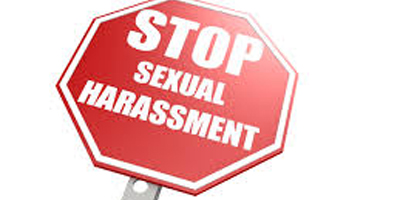Female journalists call for safer work environment
JournalismPakistan.com | Published: 16 May 2016
Join our WhatsApp channel
A recent dialogue highlighted the alarming levels of sexual harassment faced by female media professionals in Pakistan. Participants urged media organizations to prioritize safety and create in-house committees to address complaints.Summary
KARACHI: Threats, intimidation and sexual harassment of females at workplace are pervasive in Pakistan´s media organizations and is a serious barrier to the entry of women. This was the consensus of the Consultative Dialogue on Safety Challenges for Female Media Professionals organized here by Pakistan Press Foundation (PPF) with the support of Open Society Institute (OSI). The meeting felt newspapers, radio and television channels in Pakistan have not done enough to promote a sense of safety for women to work there. This is evident from the fact that only a handful of media houses have set up in-house inquiry committees to investigate complaints of sexual harassment of their female staff. Under the Protection of Women against Harassment at Workplace Act 2010, all organizations in Pakistan are legally required to set up these three member in-house committees. The meeting felt that sexual predators especially target the most vulnerable and needy female staff members and it was necessary for their employers to provide a safe and secure work environment for all female employees. The meeting urged all media organizations including Pakistan Federal Union of Journalists (PFUJ), Council of Pakistan Newspaper Editors (CPNE), All Pakistan Newspaper Society (APNS) and Pakistan Broadcasters Association (PBA) to encourage and facilitate their members to ensure the creation of the committees which would promote a sense of security for their female staff members and also encourage other women to enter the profession. The meeting also urged media organizations to promote awareness of Code of Conduct at the Workplace against Sexual Harassment which is part of the Sexual Harassment at Workplace Act. The participants that included female media professionals from all provinces felt that sexual harassment at workplace was rampant in Pakistani media organizations. Women who complain against sexual harassment are branded as trouble makers and feel isolated at their work places. The safety challenges faced by women employees in media organizations in Pakistan cover a range of physical, mental and emotional threats, intimidations and retaliations. These acts include inappropriate sexual advances, touching or groping, standing inappropriately close to female colleagues, persistent staring or ogling. Other common forms of sexual harassment include passing of inappropriate comments, obscene conversations and jokes, obscene SMS messages and phone calls. Participants felt that at times their male colleagues try to damage the reputation of females who complain of sexual harassment and raise questions about their moral character. Victims of sexual harassment often do not find support from their bosses or even other women colleagues who do not want to create tensions in the office. Female media professionals also have to face insinuations that being a woman made it easier to get important news scoops or interviews, which minimizes achievements and does not recognize their performance. Sexual harassment of women is a global problem and according to the international survey on violence and harassment against women in the news media by the International News Safety Institute (INSI) and International Women´s Media Foundation (IWMF) two-thirds of women media professionals face threats and the majority of the threats are in the workplaces. Earlier, Dr. Salman Arif, gender rights expert and former journalist gave an overview of the societal aspects of sexual harassment and abuse of power. He said our societies do not have level playing fields for women who face many restrictions and barriers to their right to earn a livelihood without fear of discrimination. He said although the state is the primary duty bearer in ensuring safety of all citizens, including females and children, it has failed to fulfill the guarantees given in the Constitution of Pakistan. He said media plays a key role in creating the image of females and added women in Pakistani media are projected either as victims of corrupting influences in society. He said only two percent of violent honor crimes are reported and 98 percent are not reported. He said even violent crimes against women such as gang rapes are covered by the media in a manner to titillate rather than horrify their audiences. He said by unnecessarily focusing on the age and beauty of female victims, the media give the impression that the women subjected to horrific atrocities may be themselves partially responsible for violence against them. - PPI
Related post from JournalismPakistan.com Archives:
Journalists face threats of sexual violence, gender discrimination: report
KEY POINTS:
- Threats and harassment are common in Pakistani media workplaces.
- Few media houses comply with the legal requirement to set up inquiry committees.
- The meeting called for better support and security for female journalists.
- Sexual harassment contributes to a hostile work environment and discourages women's entry into the profession.
- Experts emphasize the need for societal change and media's role in shaping perceptions of women.

























